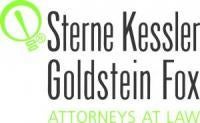On July 2, 2015, the Court of Appeals for the Federal Circuit held that a patent owner’s use of a contract manufacturer (CMO) to prepare validation batches of a drug formulation for submission to FDA created an invalidating on-sale bar – even though the contract was for manufacturing and not for sale of the product – because the batches embodied the claimed invention. As bioprocessing and production patents have taken a role of increasing importance to protect compounds from biosimilar challenge, this decision in The Medicines Company v. Hospira highlights the risks of using CMOs to produce products without a recognition of triggering events for a bar under 35 U.S.C. §102(b).
The Medicines Company owns U.S. Patent Nos. 7,582,727 and 7,598,343, broadly directed to the drug bivalirudin, a synthetic peptide used as an anti-coagulant. The Medicines Company sells bivalirudin under the brand name Angiomax®. From 1997 to October 2006, The Medicines Company purchased pharmaceutical batches of bivalirudin from Ben Venue Laboratories. In 2005, Ben Venue created a batch of bivalirudin with levels of the Asp9-bivalirudin impurity that exceeded FDA’s approved maximum of 1.5%. After another batch failure, The Medicines Company hired a consultant to investigate and resolve the issue. The consultant discovered that certain methods of adding a pH-adjusting solution during the compounding process minimized the impurity to less than 0.6%. In July 2008, The Medicines Company filed applications for the ’343 and ’727 patents, which include product-by-process claims describing this discovery.
However, over one year before filing these applications, The Medicines Company contracted with Ben Venue to prepare three batches of bivalirudin using an embodiment of the patented method. Each lot was marked with a commercial product code and a customer lot number, and was released to The Medicines Company for commercial and clinical packaging.
The lower court upheld the validity of the patents and found that manufacture of the validation batches did not create an on-sale bar because: (1) there was no commercial sale since Ben Venue only sold manufacturing services, and (2) the batches fell under the experimental use exception. The Federal Circuit reversed, finding that there is no exception in the on-sale bar doctrine for suppliers. And the fact that title of the patented product was not transferred was irrelevant.
The Federal Circuit stated that to ensure the on-sale bar is not easily circumvented, the bar applies where the evidence clearly demonstrates that the inventor commercially exploited the invention before the critical date, even if the inventor did not transfer title to the commercial embodiment of the invention. The Federal Circuit also found no principled distinction between the commercial sale of products prepared by the patented method and the commercial sale of services that result in the patented product-by-process. The Court reasoned that The Medicines Company paid Ben Venue for performing services that resulted in the patented product-by-process, and thus a “sale” of services occurred.
The Federal Circuit reasoned that the “sale” of manufacturing services provided a commercial benefit to The Medicines Company more than one year before any patent application was filed. The commercial benefit was Ben Venue’s demonstration that The Medicines Company’s product met the already-approved specifications for finished bivalirudin product. Additionally, commercial benefit arose when Ben Venue marked the batches with commercial product codes and customer lot numbers and sent them to The Medicines Company for commercial and clinical packaging, consistent with the commercial sale of pharmaceutical drugs.
The Federal Circuit distinguished earlier precedent where instances of “secret, personal use” did not trigger the on-sale bar. In Trading Techs. Int’l, Inc. v. eSpeed, Inc., 595 F.3d 1340, 1361-1362 (Fed. Cir. 2010), the Court held that inventors could hire a consultant to help develop software that was for their own use because the inventors lacked the expertise to develop the software. In The Medicines Company the Federal Circuit appeared to place significance on the fact that Ben Venue’s activity was not insignificant – The Medicines Company admitted that each validation batch had a commercial value of over $10 million. It likely did not help their cause when The Medicines Company admitted that some of the validation batches were sold after the patent applications had been filed.
The Federal Circuit also reversed the district court’s finding that the experimental use doctrine bars the application of the on-sale bar to the Ben Venue batches. Although The Medicines Company asserted that it had not reduced the invention to practice when the batches were made because it did not appreciate the maximum impurity level limitation of the claimed invention, the Federal Circuit stated that, “Once an inventor realizes that the invention as later claimed works for its intended purpose, further ‘experimentation’ may constitute a barring public use.” (quoting Seal-Flex, Inc. v. Athletic Track & Court Constr., 98 F.3d 1318, 1324 (Fed. Cir. 1996)). The Court reiterated that the present case “is not a situation in which the inventor was unaware that the invention had been reduced to practice, and was experimenting to determine whether that was the case. The batches sold satisfied the claim limitations, and the inventor was well aware that the batches had levels of Asp9-bivalirudin well below the claimed levels of 0.6%.”
Many companies, especially small biotechs, rely on CMOs to produce their highly complex biologics. The Medicines Company highlights the need for constant communication between scientific teams and legal departments to ensure triggering events for a bar under 35 U.S.C. §102(b) are identified, especially in view of the more limited grace period introduced by AIA.



 />i
/>i

